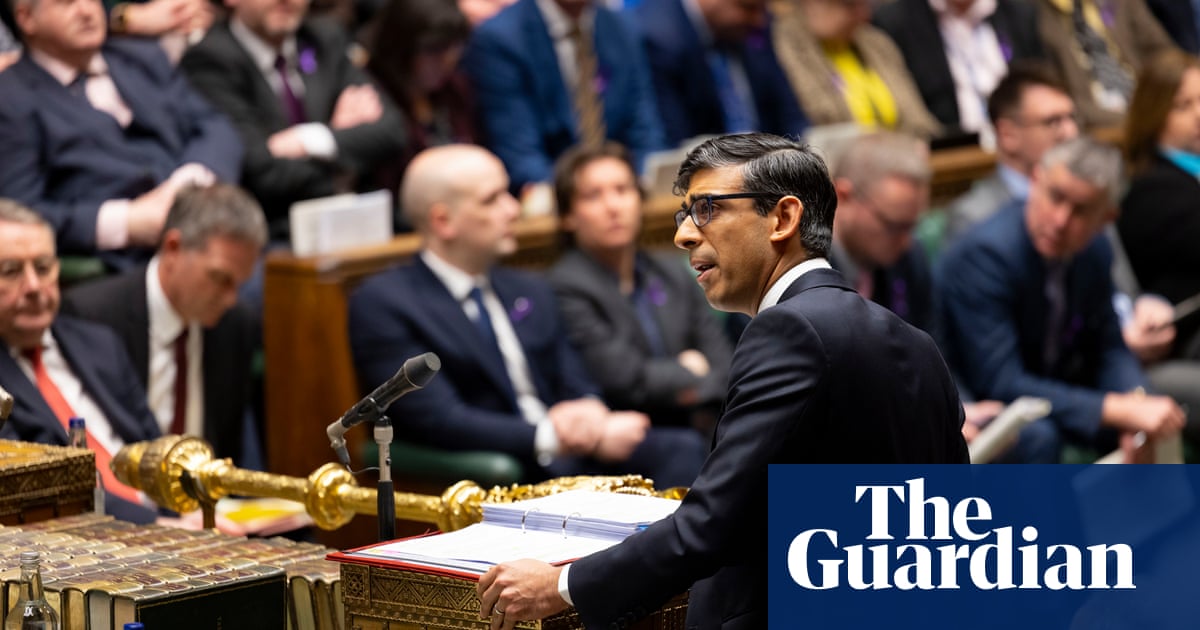
Labour will end the blame culture aimed at people out of work and will not repeat the “salami slicing” of the benefits bill pursued by the Tories, the work and pensions secretary pledges today, as she warns that rising welfare spending is unsustainable.
In her first newspaper interview since taking the role, Liz Kendall told the Observer that a drastic overhaul was required to fix a “broken” back-to-work system, warning that the number of people who are economically inactive was now bigger than the population of London.
Describing her task as “one of the biggest challenges the country faces”, she said that she would be bringing in major reforms to a system that was failing too many of the near record 2.8 million people now out of work due to long-term sickness.
She accused a series of Conservative politicians of using anti-welfare rhetoric against people in need of help. Amid concerns within Labour that welfare will be squeezed as part of chancellor Rachel Reeves’s first budget this autumn, Kendall said she would not make reform “merely about cuts and blame”.
Citing large projected increases in welfare spending, she added: “I do not think it’s sustainable when you’re seeing those levels of increases, but we can do something about it.”
She criticised the previous government’s approach, which she described as “salami slicing cuts [and] divisive rhetoric that blames people and doesn’t support them.
“We’ve never seen more people written off. The last parliament was the worst for economic inactivity on record. It is for us to put this right. But we will need big reforms and big changes. I know people worry about this, but I want to say, we are on your side. We are not going to write you off and blame you. We take our responsibilities seriously. We’re going to bust a gut to give you the support you need to build a better life.”
Reeves has already made it clear that she will make “tough decisions” on welfare spending in the forthcoming budget, describing spending as “out of control”. Over the next six years, spending on incapacity and disability benefits for working age people is projected to rise to £63bn – a real-terms increase of almost 48%. However, some MPs are wary of any squeeze that would only save money in the short term.
Kendall repeatedly took aim at the rhetoric used by a series of Conservative figures. While former chancellor George Osborne talked about “shirkers”, Rishi Sunak denounced a “sicknote culture”. When he was work and pensions secretary, Mel Stride said some people did not work because they felt “down and bluesy”.
“All of the talk about strivers versus scroungers or shirkers – I think the people who really shirk their responsibility were the people who last sat in this office because they wrote off millions of people who actually want to work,” Kendall said. “It matters deeply for individuals and their ability to have a decent life for themselves. It matters to our economy because it is the major thing holding back growth. But it also matters to the public finances as well.”
Plans to curb welfare spending come with the Tories criticising the government for reaching a series of pay deals designed to end strikes. A backdated pay offer for train drivers was announced last week: it followed the chancellor’s £9bn package to increase public sector pay and a major increase offered to junior doctors.
Stride said his party would “take no lectures from the government, who have failed at the first hurdle to signal that they will get a grip on welfare spending”.
“Labour have made their priorities clear – taxpayer-funded above-inflation pay rises demanded by their union paymasters and scrapping welfare reform that could save the taxpayer £12bn – all while axing winter fuel payments for pensioners. Without taking much-needed action to make the welfare bill sustainable, Labour will once again ramp up taxes.”
In a frank assessment of the challenge she faces, Kendall said she was “under no illusions” about the size of her task. She said the current system “is broken. It’s not working. But I know that our work coaches are full of passion and ideas about doing things differently.”
Kendall suggested there would be serious reforms to jobcentres, freeing them up from monitoring benefits and linking them with the NHS to help those struggling to work for health reasons. “We have got to put jobcentres back to where they were initially meant to be, which is a public employment service,” she said. “That isn’t how they are. Their overwhelming focus is on monitoring, assessing and policing benefits. We’ve got 16,000 work coaches and we want them to do what they say on the tin.”
She also committed to a review of universal credit, new plans to tackle economic inactivity led by local areas and mayors and a “youth guarantee” ensuring every 18-21-year-old could get training, an apprenticeship or support to find work. More details of her plans will be unveiled in a white paper in the autumn.
Kendall would not be drawn on whether she was pushing for the Treasury to end the two-child limit on benefits that most experts believe is a driving force behind child poverty. However, the Leicester West MP said that the government’s child poverty taskforce had met for the first time last week and that the issue was a priority.
“I have got one in three kids in Leicester growing up poor,” she said. “On one of my last visits to one of my primary schools, they’d had to go out to find a young boy who had not been at school. When they found him at home, all he had was a bowl of salad cream for breakfast. I know in my bones how appalling the situation is.
“I will only make a commitment when I know that we can deliver on it. The last Labour government did incredible things to tackle poverty, but it was so easily overturned by the Tories. We are determined that our strategy will not only take immediate action, but this time it will last.”












